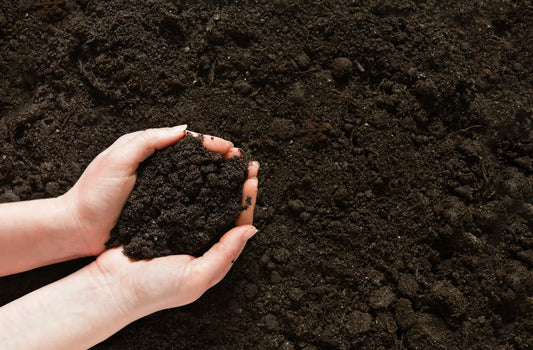Gardening is more than just a hobby; it’s a pathway to a happier, healthier life.
We like to keep things clean and tidy, but it's possible we might be a bit too focused on staying germ-free. It turns out, getting your hands dirty every once in a while could actually be good for your health! Touch the soil!
Have you ever noticed how a walk in the park or a visit to a botanical garden makes you feel more relaxed? That’s because nature has a profound impact on our well-being.
The connection between nature and mental health
Throughout history, humans have had a close relationship with nature. Ancient civilizations recognized the healing powers of plants and green spaces.
Modern science supports this, with numerous studies highlighting the mental health benefits of spending time in nature.
Research shows that exposure to green spaces can reduce symptoms of depression and anxiety, improve mood, and increase feelings of well-being.
Physical benefits of gardening
Gardening is a form of exercise that offers many physical benefits. Touching the ground, digging, planting, weeding, and watering can provide a moderate workout, helping to keep you fit.
Physical activity releases endorphins, which are natural mood lifters. Additionally, being outside allows you to soak up some sun, increasing your vitamin D levels, which is known to combat depression.
Psychological benefits of gardening
Engaging in gardening activities can significantly reduce stress levels. The act of tending to plants, being in touch with nature, and focusing on the present moment helps to clear the mind of worries.
Completing gardening tasks can also boost self-esteem and provide a sense of accomplishment. There's something incredibly rewarding about nurturing a plant from seed to bloom.
Gardening as a form of therapy
Horticultural therapy is a professional practice that uses gardening to improve mental and physical health.
It’s particularly effective for individuals with mental health issues, disabilities, or chronic illnesses. Case studies show that patients involved in horticultural therapy experience reduced anxiety, improved social interaction, and enhanced cognitive functioning.
The social aspect of gardening

Gardening can also be a social activity. Community gardens are popping up in urban areas, offering people the chance to grow their own food while connecting with others.
These gardens provide a sense of community, reduce feelings of loneliness, and create opportunities for social interaction. Building relationships and sharing a common goal can significantly boost your mood.
Mindfulness and gardening
It is a great way to practice mindfulness, which involves being fully present in the moment. The repetitive nature of tasks like weeding, planting, and watering can be meditative.
Mindfulness helps reduce stress, improve focus, and enhance emotional regulation. When you garden, you immerse yourself in the experience, helping to keep negative thoughts at bay.
Gardening and creativity
Gardening is a creative outlet that allows you to express yourself. From designing the layout of your garden to choosing plants and colors, it involves a lot of planning and creativity.
This creative process can be very fulfilling and can provide a sense of purpose and pride in your work.
Gardening with family
Gardening is an excellent way to bond with family members. It’s a fun and educational activity that can be enjoyed by people of all ages.

Teaching children to garden instills a sense of responsibility and an appreciation for nature. Working together in the garden strengthens family ties and creates lasting memories.
Gardening for different age groups
The benefits of gardening extend to all age groups. For children, it’s a playful way to learn about nature and develop fine motor skills.
For seniors, gardening can be a gentle form of exercise that helps maintain mobility and cognitive function. It’s never too early or too late to start enjoying the benefits of gardening.
Seasonal gardening and mood enhancement
Planting in spring, harvesting in summer, enjoying the colors of autumn, and preparing for winter can keep you engaged and active.
Gardening can help combat seasonal affective disorder (SAD) by providing outdoor activities and exposure to natural light year-round.
Gardening and nutritional benefits
Growing your own fruits, vegetables, and herbs ensures you have fresh, organic produce at your fingertips. This encourages healthier eating habits and provides the satisfaction of eating food you've grown yourself.
Good nutrition is linked to better mental health, making gardening a win-win.
Practical tips for starting a garden
Ready to start gardening? Here are some tips:
- Choose the right plants. Select plants that suit your climate and soil.
- Basic gardening tools. Invest in essential tools like gloves, a trowel, and a watering can.
- Start small. Begin with a few plants and gradually expand your garden.
- Learn from others. Join a gardening club or online community for tips and support.
Can indoor gardening improve your mood? Absolutely! Indoor plants can bring the benefits of nature inside, helping to purify the air and create a calming environment.
Overcoming common gardening challenges
Gardening comes with its challenges, but don't let them discourage you. Here are solutions to common problems:
- Pest control: Use natural remedies like neem oil or introduce beneficial insects.
- Soil health: Test your soil and amend it with compost or organic matter as needed.
A dirt-free lifestyle puts us aside from nature.
Gardening is a multifaceted activity that offers numerous mental, physical, and emotional benefits. Whether you have a sprawling backyard or a small balcony, you can enjoy the therapeutic effects of gardening.
So, grab a shovel, plant some seeds, and watch your mood bloom along with your garden. Touch the soil!



